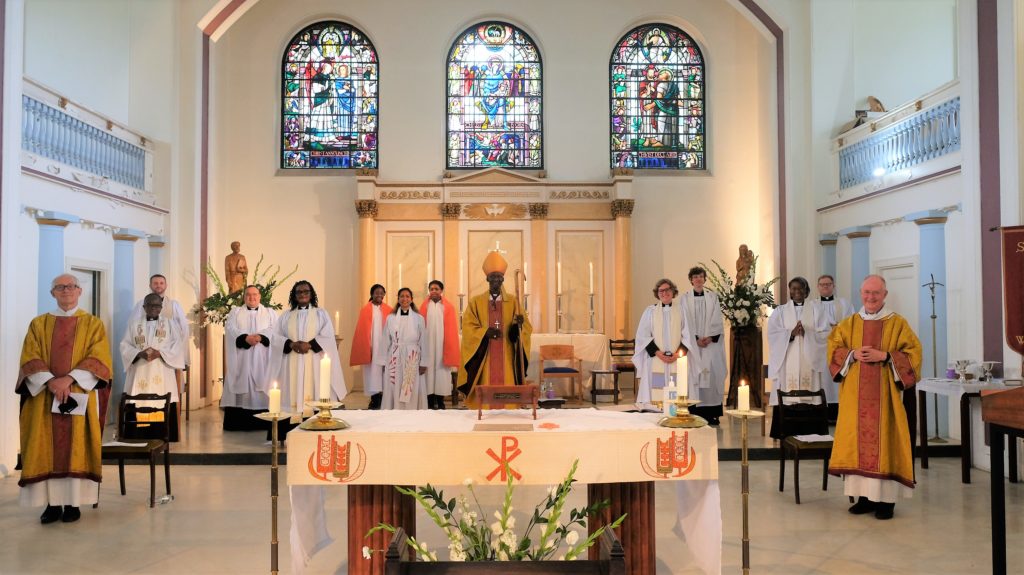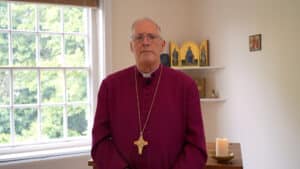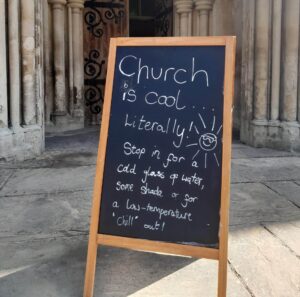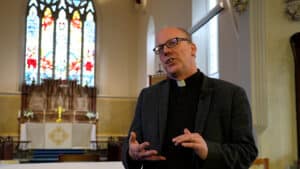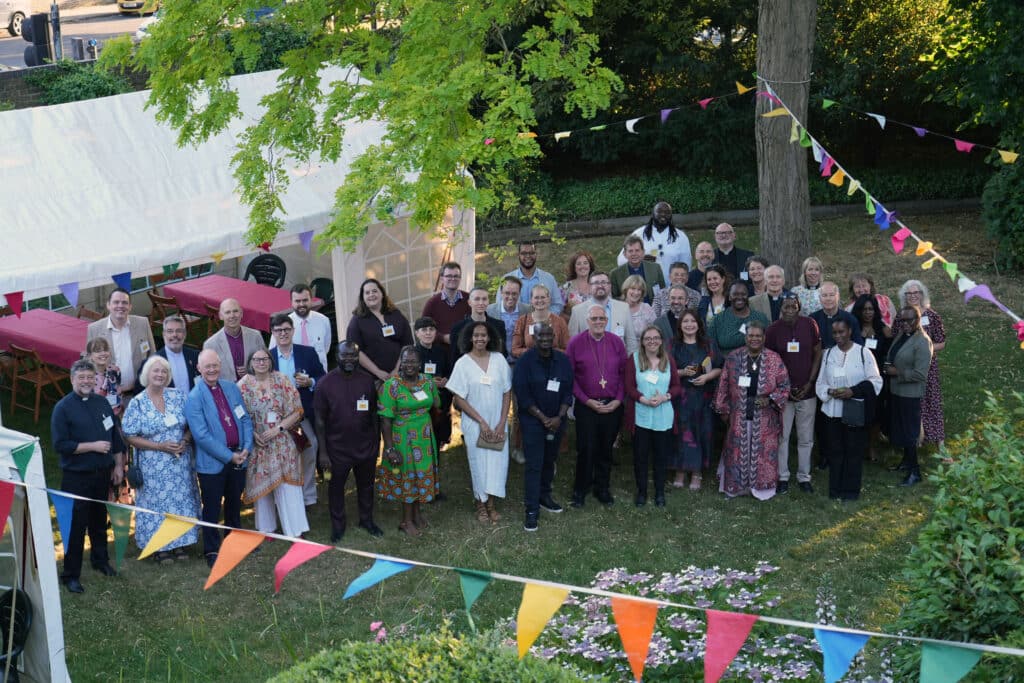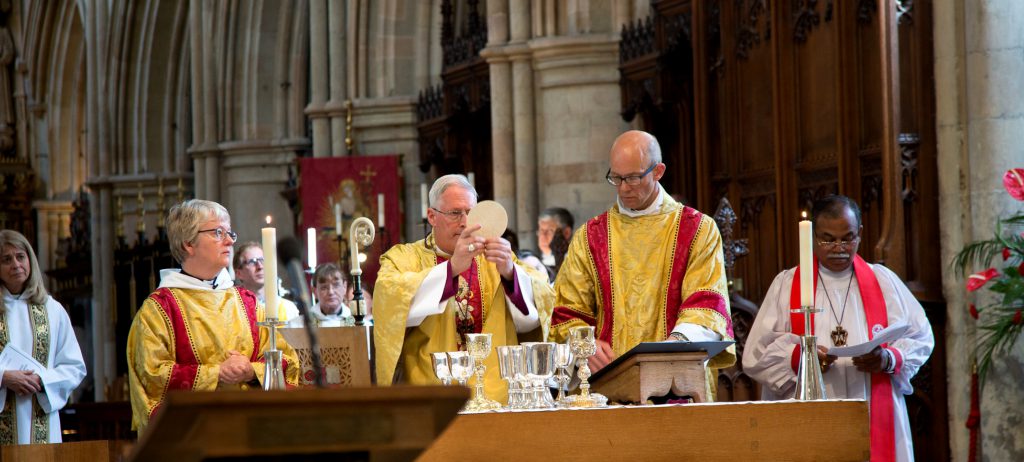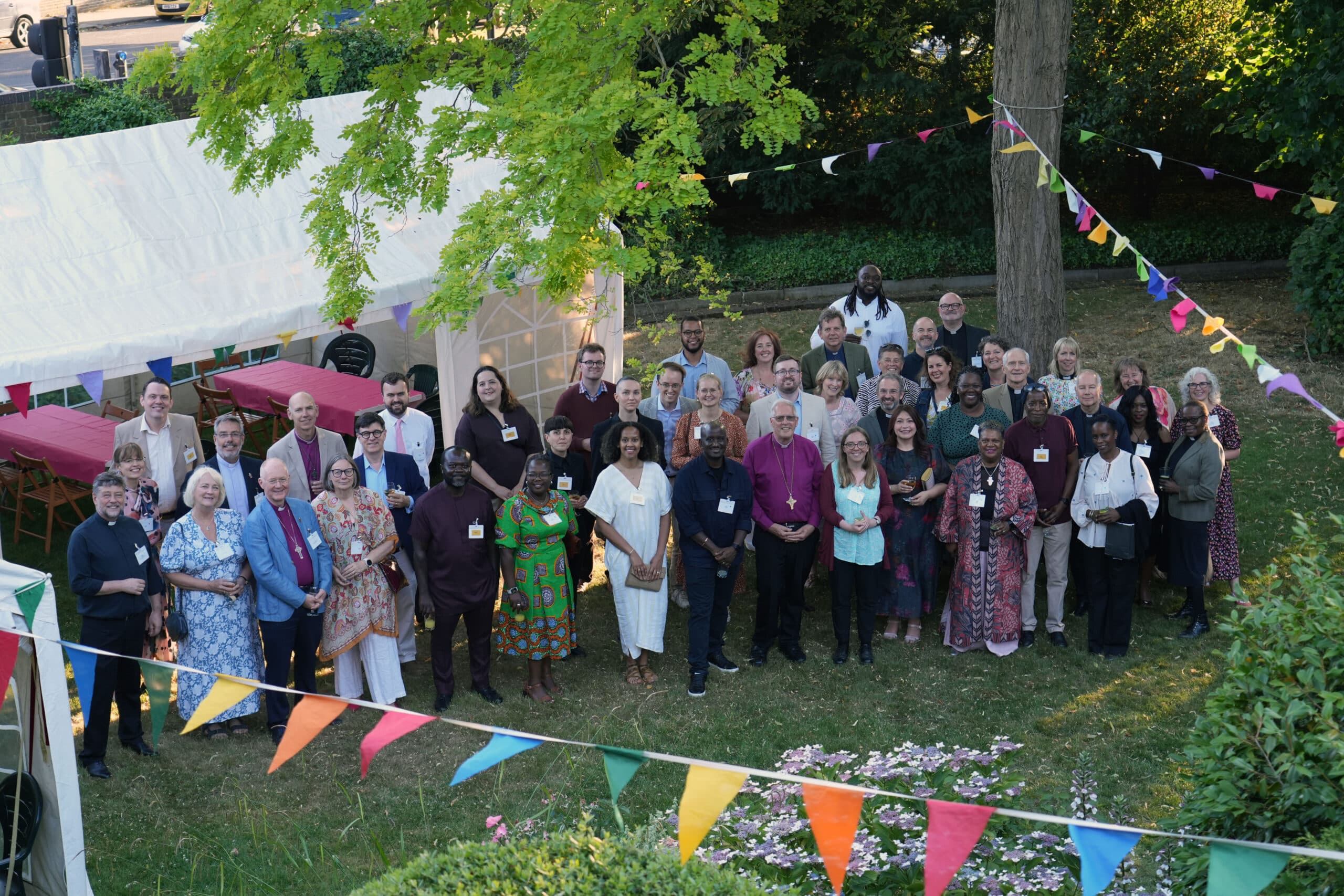Last week I met with a group of RE students who were visiting the Cathedral and, as part of their visit, I was invited to be in the ‘hot seat’. This means that this group of 14 to 15 year olds could ask me anything. And they did!
One of the really interesting questions they asked was about my ‘career’ as a priest. They were wondering how I get promoted and whether I get a pay rise! It blew their minds when I explained that this is not how we think about ministry; that a vocation to ministry is the opposite of having a career. We certainly don’t go into ordained ministry for the reasons that some people might choose a secular career such as opportunities for promotion, pay rises, and so on. Instead, for me at least and I know for many others, it is something that is has a personal cost but is also an enormous privilege and source of great blessing and comfort.
As Assistant Diocesan Director of Ordinands my job partly involves being alongside people as they explore their sense of calling. This got me thinking about how having a vocation and not a career influences how we select people for training.
The Church of England’s selection process for those who believe they have a vocation to ordained ministry has changed and we are about halfway through the first year of the new ‘Shared Discernment Process’ as it’s called. This now consists of two sets of interview panels.
But what do we do in the Diocese to prepare candidates for these panels? Southwark has a reputation for having a rigorous selection process. We believe that it is important that candidates who are going forward to the national selection panels are as well prepared as possible. Particularly that candidates have a rich and full understanding of what it means to be ordained and what pressures and expectations this might place not just on the individual but on their family as well.
The ultimate test is whether a vocation to ordained ministry is ‘realistic, obedient and informed’. An informed vocation is one where the individual is aware of the blessings as well as the pressures and even the personal cost of pursuing their vocation. While an obedient vocation is one where the individual has heard God’s call in some way and responded to it. A realistic vocation is, perhaps, more difficult to define but an unrealistic vocation can be where either the individual themselves or those of us in the Vocations team discern that it would not be appropriate for that individual to proceed in the process. This is a very difficult decision to make but it is one that we take very seriously based on evidence and it is not a decision that is made by just one person alone.
The formal process at Diocesan level starts with the individual attending a Vocations Forum which is a day of workshops, reflection and worship around responding to God’s call. If you would like to attend a Vocations Forum ask your vicar to contact Sue Stewart who will provide them with more details. You would then spend three to five months meeting with a Vocations Adviser about once a month. If the VA thought it was right for you to proceed, you would then meet with an Area Director of Ordinands. This would mean meeting every six weeks or so over the course of around 12 to 18 months. The ADO goes into much more depth about what qualities we are looking for in someone whose vocation is realistic, obedient and informed. As well as meeting with an ADO, you would gain wider experience of the Church of England by spending time on placement in a church different from your own. Your ADO would also ask you to do some writing and reflection on your developing sense of vocation.
All of this is before going forward for selection for ordination training. If someone is selected for training they become an ‘ordinand’ (i.e. someone in training for ordained ministry). They might want to consider going away to a theological college as a residential ordinand; while for many people, being a non-residential ordinand is a better option. To get the most out of training and to make the transition from being ‘in the pews’ to being ‘at the front’ ordinands move to a church that is different from their home church. We don’t ask anyone to leave behind their friends and support networks in their home parish, but we do ask them step back from any formal links. For example, being a churchwarden, PCC member or some other volunteer role at their home church. We recognise that this can be painful, but it really is an important part of ordination training as it means fully inhabiting the new role of someone training for ministry and becoming more informed about the magnitude of what ordained ministry entails. It’s more than just a job and it definitely isn’t a career. Rather, it’s a vocation which, when entered into joyfully and with understanding and acceptance may be a source of deep blessing and consolation.
The wonderful thing about vocations is that God calls each and every one of us to live out our discipleship in the service of others and in the worship of God. For some, this does mean ordained ministry and for others this means lay ministry. People from all backgrounds and abilities are called into lay and ordained ministry. So, if you think you might be being called, speak to your vicar and if you want to have an informal chat about your sense of calling, I am always happy to meet with you either online or in person. Just get in touch.
Find out more about Vocations on our website at southwark.anglican.org/exploring-your-call.




